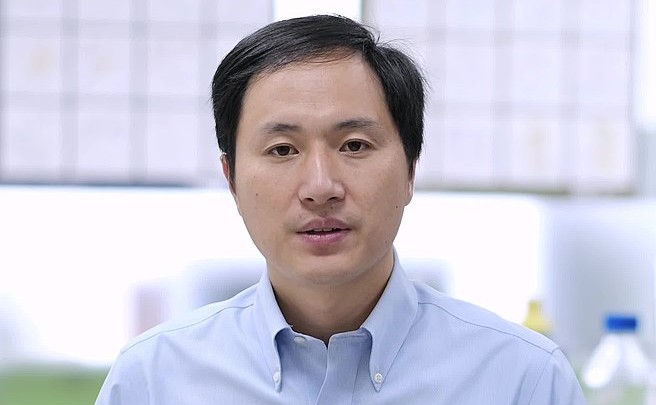When He Jiankui announced the birth of CRISPR-edited babies[1] in late November (2019) the news quickly went public with the story of gene-edited girls, even after providing detailed information about his work at a gene-editing summit, his action was widely condemned, and criticized.
In 2019 Jiankui was arrested by the Chinese government for “illegal medical practices”.
Jiankui’s goal was to make the babies immune to HIV, but his plan of doing so, totally backfired and his actions made the Chinese Government contemplate its ethical policies for human genome editing.
No one knows about three children whose genome was modified other than Jiankui himself, who recently claimed that Lulu, Nana (twins), and Amy are in good health.
After nearly 5 years China disclosed a new set of rules and regulations aimed at preventing and prohibiting the repeat of such ethically problematic research again in China.
What are the Rules for Performing Germline Editing in China?
The new rules are an extensive revision of rules formulated in 2016 and aim to fill the plotholes of previous ones.
The government released the new set of rules on 27 February 2023 just one week before the International Summit on Human Genome Editing in London.
Work on new rules began in 2019 some months after Jiankui’s announcement of the birth of three genetically modified babies.
The new rules, the “Measures for Ethical Review of Life Sciences and Medical Research involving Humans” (check English translation of Measures for Ethical Review of Life Sciences and Medical Research involving Humans)[2] intend to strengthen the current guidelines for protecting people enrolled in research.
The people participating in studies are now called “research participants” instead of “research objects” or “receiving human subjects”, as being a participant implies making a significant contribution to the research.
Research must inform the “research participants”, about the alternative drug treatment being provided to them, something that Jiankui ignored in his research program.
Participants must have a way to contact the ethics review committee to report any concerns.
And scientists must also share information about potential conflicts of interest, sources of biological samples, and how the results will be published.
The new rules explicitly state that research participants will apply to “institutions of higher learning and scientific research institutions” not just hospitals and healthcare institutions.
Germline editing research is allowed but establishing a pregnancy with a genetically modified embryo is prohibited and allowing genetically modified embryos to grow past 14 days is also prohibited.
Gene editing requires approval from an ethics committee from a hospital and IVF clinic but approval from the National Regulatory Agency is not required.
Feedback from Scientists Studying Gene Editing
Many researchers wholeheartedly welcomed the new rules, which set regulatory measures for research regarding human tissue, embryos, and fertilized eggs.
There are scientists who also believe that new rules are just not enough seeing the ongoing innovation for human genome editing in China and there’s a possibility that this new convention might fail to keep up with the pace of developments in gene editing techniques.
Dr. Francoise Baylis, a Canadian bioethicist from Dalhousie University, said that the details that the Chinese government released simply aren’t enough and she would like to know which Ethical principles, where they are set out, and whether they are open to questioning or not.
Scientists and bioethicists also express their concerns because the new rules aren’t applicable to private entities.
Joy Zhang, a China-born sociologist says, “The new rules are definitely significant but certainly insufficient for surging innovation for human genome editing in China.“
And people don’t even know a lot about the work going on in China for human gene editing as a significant amount of work is kept secret.
References
- Yashika Sharma, ‘Upgrading Humans – Human Genome Editing with CRISPR‘, 6 March 2023[↩]
- ‘Measures for Ethical Review of Life Sciences and Medical Research involving Humans‘, Original, English Translation, Nhc.gov.cn, 27 February 2023[↩]





